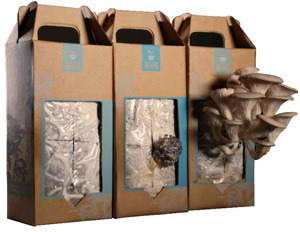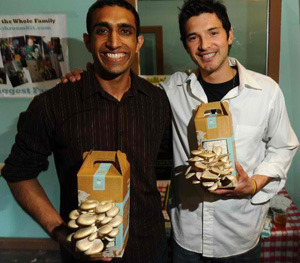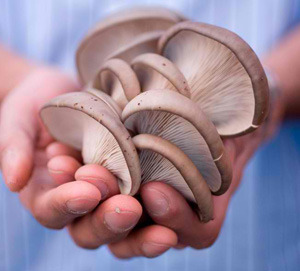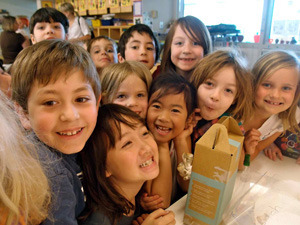Beth Greer's Blog, page 9
July 18, 2011
Medicating the Masses: Vaccines and Your Health
"Your Super Natural Life with Beth Greer" GUEST: Jon Rappoport, one of the most relentless medical reporters in the world, talks about the latest issues concerning vaccines and their impact on autism, and your health. Plus, why no comprehensive study has ever been conducted to prove the effectiveness or safety of commonly used vaccines. http://www.NoMoreFakeNews.com
Listen Now:

July 13, 2011
Clearing the Air: 5 Easy Ways to Reduce Toxins and Stay Healthy
 Airborne chemicals are embedded inside our homes. They swirl around us as toxic gases emitted from the poorly-labeled bottles of cleaning fluids in our kitchens and bathrooms, from the bug sprays and air fresheners we use, and from the glues, sealants and flame retardants in our furniture. They are also dragged inside our homes on the bottoms of our shoes and then stirred up when we walk on our carpets. Studies have shown that the air that surrounds us indoors is more toxic than the air outdoors — even if you live in a highly polluted city like Los Angeles or New York.
Airborne chemicals are embedded inside our homes. They swirl around us as toxic gases emitted from the poorly-labeled bottles of cleaning fluids in our kitchens and bathrooms, from the bug sprays and air fresheners we use, and from the glues, sealants and flame retardants in our furniture. They are also dragged inside our homes on the bottoms of our shoes and then stirred up when we walk on our carpets. Studies have shown that the air that surrounds us indoors is more toxic than the air outdoors — even if you live in a highly polluted city like Los Angeles or New York.
Read the rest on Huffington Post Green

July 12, 2011
Turning Waste into Wages: Using Recycled Coffee Grounds to Grow Gourmet Mushrooms
 What if you could take 1 million pounds of waste that was heading towards landfill and repurpose it to grow food? Well, that's exactly what two recent UC Berkeley graduates are doing with their company Back to the Roots. Founders, Nikhil Arora and Alex Velez started a 100% sustainable urban mushroom farm that transforms coffee ground waste into the growing medium for gourmet mushrooms. The 2 year-old company is on pace in 2011 to collect, divert and reuse 1 million lbs. of used coffee grounds, from Peet's Coffee & Tea, a San Francisco Bay Area company, and use it to grow over 250,000 lbs. of gourmet mushrooms.
What if you could take 1 million pounds of waste that was heading towards landfill and repurpose it to grow food? Well, that's exactly what two recent UC Berkeley graduates are doing with their company Back to the Roots. Founders, Nikhil Arora and Alex Velez started a 100% sustainable urban mushroom farm that transforms coffee ground waste into the growing medium for gourmet mushrooms. The 2 year-old company is on pace in 2011 to collect, divert and reuse 1 million lbs. of used coffee grounds, from Peet's Coffee & Tea, a San Francisco Bay Area company, and use it to grow over 250,000 lbs. of gourmet mushrooms.
They got the idea during their last semester at Berkeley in 2009. The two 23-year-olds had the intention to go into investment banking and consulting, but became intrigued, during a business ethics class lecture, with the idea of being able to grow gourmet mushrooms entirely on recycled coffee grounds. They walked around to local cafes and collected used coffee grounds, put them in paint buckets and seeded them with mushroom spawn. The experiment, to their delight, led to one bucket of pearl oyster mushrooms. They then saw the potential of these mushrooms… to turn waste into wages, as well as provide fresh, local food to their community.
 "We knew nothing about what a good gourmet mushroom should taste like, so we thought, what's the best restaurant in town?" said Nikhil during a recent interview on my radio show "Your Super Natural Life." Chez Panisse, the acclaimed Berkeley restaurant, wasn't too far from their campus, so they walked their bucket of mushrooms over and its founder Alice Waters happened to be there that day. She got excited and got her head chef involved, who immediately sauteed them, tasted them, and declared that the mushrooms were great. That same day, the guys walked into their local Berkeley Whole Foods Market and the produce buyer was excited about the idea and Whole Foods became a client. Two weeks before graduation they received a $5,000 Grant for Social Innovation. The guys, who graduated Summa Cum Laude from Biz School, changed direction at that moment. "We looked at each other and said, let's forget investment banking and consulting and become full time mushroom farmers," said Nikhil.
"We knew nothing about what a good gourmet mushroom should taste like, so we thought, what's the best restaurant in town?" said Nikhil during a recent interview on my radio show "Your Super Natural Life." Chez Panisse, the acclaimed Berkeley restaurant, wasn't too far from their campus, so they walked their bucket of mushrooms over and its founder Alice Waters happened to be there that day. She got excited and got her head chef involved, who immediately sauteed them, tasted them, and declared that the mushrooms were great. That same day, the guys walked into their local Berkeley Whole Foods Market and the produce buyer was excited about the idea and Whole Foods became a client. Two weeks before graduation they received a $5,000 Grant for Social Innovation. The guys, who graduated Summa Cum Laude from Biz School, changed direction at that moment. "We looked at each other and said, let's forget investment banking and consulting and become full time mushroom farmers," said Nikhil.
 Most mushroom growers use wood shavings or sawdust, and many import the growing medium from China where they're cutting down trees just for the purpose of growing mushrooms. Plus, about a third of the energy costs for growing mushrooms is sterilizing the growing medium. Coffee grounds have already been sterilized by having boiling hot water poured over them, and are also rich in cellulose, making them a superior growing medium. In addition, when coffee grounds go into landfill they create a lot of methane gas, affecting greenhouse gas emissions, and they take up a lot of space, so it's a win win all around.
Most mushroom growers use wood shavings or sawdust, and many import the growing medium from China where they're cutting down trees just for the purpose of growing mushrooms. Plus, about a third of the energy costs for growing mushrooms is sterilizing the growing medium. Coffee grounds have already been sterilized by having boiling hot water poured over them, and are also rich in cellulose, making them a superior growing medium. In addition, when coffee grounds go into landfill they create a lot of methane gas, affecting greenhouse gas emissions, and they take up a lot of space, so it's a win win all around.
 But there's more…Back to the Roots is repurposing its own waste. After the mushrooms are grown on the coffee grounds, what's left over becomes a wonderful soil amendment, which Alex and Nikhil are now selling to Whole Foods and donating a lot of it to school gardens and non-profit farms. A handful adds amazing nutrients to plants and flowers. They are also producing Grow at Home Mushroom Kits and are hope to inspire people to grow their own food. The mushrooms appear in about 10 days, right from the box, and produce about a pound and a half of gourmet mushrooms. Over 300 Whole Foods are selling them. (Greenopolis readers can get a 10% discount online by using the code "greenopolis10" on the Back to the Roots website).
But there's more…Back to the Roots is repurposing its own waste. After the mushrooms are grown on the coffee grounds, what's left over becomes a wonderful soil amendment, which Alex and Nikhil are now selling to Whole Foods and donating a lot of it to school gardens and non-profit farms. A handful adds amazing nutrients to plants and flowers. They are also producing Grow at Home Mushroom Kits and are hope to inspire people to grow their own food. The mushrooms appear in about 10 days, right from the box, and produce about a pound and a half of gourmet mushrooms. Over 300 Whole Foods are selling them. (Greenopolis readers can get a 10% discount online by using the code "greenopolis10" on the Back to the Roots website).
In two years the company has grown from an idea to having a 10,000-square-foot warehouse in Oakland, CA and a staff of 14. It is one of the most innovative, socially conscious, green businesses I've seen. It's no surprise that in 2010 its founders were named BusinessWeek's "Top 25 Entrepreneurs under 25." Future plans? They're experimenting with using soy pulp and tea waste. But they really see their company as more than an urban mushroom farm. They want to inspire people and create awareness about waste, sustainability, and growing their own food. Also, check out their school campaign on Facebook. Anytime anyone posts a picture on their facebook page with their fully-grow kit, BTR will donate a kit and sustainability curriculum to an elementary school classroom of their choice.
Beth Greer, Super Natural Mom®, is a syndicated radio talk show host, former president and co-owner of The Learning Annex, Certified Build It Green® healthy home makeover specialist, and holistic health educator, who eliminated a sizable tumor in her chest without drugs or surgery. She's author of the bestseller, "Super Natural Home," endorsed by Deepak Chopra, Ralph Nader, Peter Coyote, and Dr. Joe Mercola. Beth is leading a movement of awareness and responsibility about healthy home, work, and school environments. Visit her at www.supernaturalmom.com

July 11, 2011
Transform your Home/Office into a Super Healthy Sanctuary
"Your Super Natural Life with Beth Greer" GUEST: Beth Greer is interviewed by Dr. Peter Fairfield on how to improve your health and well-being by making small lifestyle changes. Beth, the show's host and author of the book, "Super Natural Home," offers practical solutions to creating a safe home or office environment by eliminating invisible toxins that can cause fatigue, allergies, asthma, and other health problems. http://www.BethGreer.com
Listen Now:

July 4, 2011
Indigenous Medicine for Healing with the Global Medicine Hunter
"Your Super Natural Life with Beth Greer" GUEST: Meg Jordan, Ph.D., RN, author, health journalist, clinical medical anthropologist, and "Global Medicine Hunter," talks about searching the globe for healing remedies derived not only from botanicals, but from ritual, energy work, prayer, and non-ordinary ways of knowing. She shares her insights into the benefits of taking Turmeric and Red Reishi mushrooms, and why healing circles are beneficial for people with chronic disease. http://www.megjordan.com/
Listen Now:

June 27, 2011
Turning Waste into Wages: Using Recycled Coffee Grounds to Grow Gourmet Mushrooms
"Your Super Natural Life with Beth Greer" GUEST: Nikhil Arora, co-founder of Back to the Roots talks about how he started his 100% sustainable urban mushroom farm that transforms coffee ground waste into the growing medium for gourmet mushrooms. This year alone his company will collect and reuse 1 million lbs. of used coffee grounds (from Peet's Coffee) and use it to grow over 250,000 lbs of gourmet mushrooms. www.backtotheroots.com
Listen Now:

June 20, 2011
Women's Earth Alliance: Creating Solutions for Water, Food, Land, and Climate Change
"Your Super Natural Life with Beth Greer" GUEST: Melinda Kramer, Founder and Co-Director of Women's Earth Alliance talks about how her organization empowers women around the world, by providing them with tools like training, resources and long-term solutions around water, food, land, and climate change in Africa, India and the U.S. http://www.womensearthalliance.org/
Listen Now:

June 13, 2011
Natural Alternatives to Pharmaceutical Drugs for Healing Depression
"Your Super Natural Life with Beth Greer" GUEST: Dr. Peter Fairfield, acupuncturist, healer and medical intuitive, talks about using acupuncture, energy healing, homeopathics, and herbal remedies to treat depression and other mood disorders. He also talks about LENS, or Low Energy Neurofeedback System, to help improve brain function. http://www.peterfairfield.com/
Listen Now:

June 7, 2011
Is Your Bedroom Toxic? 5 Easy Ways to Get a Restful Night's Sleep
 If you had to choose just one room in your home to make environmentally friendly, it's your bedroom. We can unsuspectingly create a toxic environment by sleeping on the wrong type of mattress, or exposing ourselves to electronic devices that interfere with sleep. Getting good quality sleep allows you to stay healthy and fight off illness because sleep is the time when your body heals, repairs and rejuvenates.
If you had to choose just one room in your home to make environmentally friendly, it's your bedroom. We can unsuspectingly create a toxic environment by sleeping on the wrong type of mattress, or exposing ourselves to electronic devices that interfere with sleep. Getting good quality sleep allows you to stay healthy and fight off illness because sleep is the time when your body heals, repairs and rejuvenates.
Transforming your bedroom into a safe haven can have a major impact on improving your health and well being. The good news is creating a healthy bedroom is pretty simple.
Start by looking at the most important piece of furniture in the room — your bed. Most mattresses are made with synthetic ingredients like polyurethane (PU) foam (that degrade over time), and have been treated with flame retardants known as PBDEs. Research has linked PBDE exposure to adverse health effects including thyroid hormone disruption and permanent learning and memory impairment. Some other chemicals used by mattress manufacturers include stain-resistant chemicals that are recognized carcinogens, as well as Boric Acid, Antimony Trioxide, Vinylidiene Chloride, Zinc Borate, Melamine, Formaldehyde, and Decabromodiphenyl Oxide. These chemicals off-gas, or release chemicals into the air… imagine breathing this stuff in every night! No other type of chemical exposure comes close to the intensity and duration of exposure to a mattress. It's in your face, with full body contact, every day, for years.
Read your mattress label, but know that there are no standard labels on mattresses listing flame retardant chemicals, so it's important to check with the manufacturer or store before purchasing.
The healthiest mattress is one made of natural latex foam. But watch for the words "made with" on the label. For example, if it says "made with natural latex" that might mean there's only 1 or 2 percent of it in the mattress! You want to see 100% (if you're chemically sensitive) or at least 80% of the mattress made with all natural, non-toxic ingredients.
If you can't afford to buy a new mattress, get a mattress topper made from organic cotton and wool. Or use a mattress cover made of a tightly woven barrier cloth. Look for a thread count of 300 or higher to help isolate an unhealthy mattress.
Choose organic cotton whenever possible (for the mattress topper as well as your sheets) because conventionally grown cotton requires huge amounts of water (bad for the planet) and lots of chemicals (bad for us and the planet) to grow. It is one of the most intensively sprayed field crops in the world. The U.S. Department of Agriculture reports that more than 53 million pounds of pesticides and 1.6 billion pounds of synthetic fertilizers are applied to cotton fields annually. Organic cotton, on the other hand, is grown without chemicals.
For the bed frame choose one made from solid wood instead of particleboard or fiberboard, which can give off toxic formaldehyde fumes. The National Cancer Institute has classified formaldehyde as "carcinogenic to humans" based on nose and throat cancers in working populations.
Do you feel buzzed at night and you haven't had any coffee? A big sleep disruptor in the bedroom might be exposure to electronic devices, wireless technology, and other forms of electromagnetic fields (EMFs). Aside from feeling buzzed, Dr. Magda Havas, a leader in the movement against unrestrained wireless technology use, says they can cause headaches, nightmares, depression, fatigue, fibromyalgia, mood disorders, as well as long-term illness.
Simplify your sleep space and try not to have your office in your bedroom. In other words don't sleep with a VCR, TV, electric clock, telephone answering machine, cell phone, or computer nearby. Dr. Havas suggests turning off your WiFi at night. WiFi, an abbreviation for "wireless fidelity," means that an Internet connection can be made without the use of wires or cables, and like cell phones, WiFi uses radiofrequency (RF) signals (radiation).
Also, your cordless phone, especially DECT (Digital Electronic Cordless Telephones) might be contributing to lack of restful sleep. All DECT digital cordless phone base stations emit microwave radiation continuously 24 hours a day, even when the phone is not in use, as long as they are plugged in. Better to have a landline phone that is hardwired.
5 Easy Ways to Get a Restful Night's Sleep:
Sleep on a mattress made from untreated, non-toxic natural materials containing no synthetic chemicals or fire retardants.
If you can't afford a new mattress, buy a wool and organic cotton mattress topper.
Buy a solid wooden bed frame instead of particleboard or fiberboard which can give off toxic fumes.
Simplify your sleep space: Try not to have your office in your bedroom, especially cordless phones, and wireless technology.
Be sure that all electrical equipment is as far away from the head of your bed as possible, or better yet, not in your bedroom at all.
Beth Greer, Super Natural Mom®, is a syndicated radio talk show host, former president and co-owner of The Learning Annex, Certified Build It Green® healthy home makeover specialist, and holistic health educator, who eliminated a sizable tumor in her chest without drugs or surgery. She's the author of the bestseller, "Super Natural Home," endorsed by Deepak Chopra, Ralph Nader, Peter Coyote, and Dr. Joe Mercola. Beth is leading a movement of awareness and responsibility about healthy home, work, and school environments. Visit her at www.supernaturalmom.com and read her blog on Red Room.

June 6, 2011
Is Your Bedroom Toxic? 5 Easy Ways to Get a Restful Night's Sleep
 If you had to choose just one room in your home to make environmentally friendly, it's your bedroom. We can unsuspectingly create a toxic environment by sleeping on the wrong type of mattress, or exposing ourselves to electronic devices that interfere with sleep. Getting good quality sleep allows you to stay healthy and fight off illness because sleep is the time when your body heals, repairs and rejuvenates.
If you had to choose just one room in your home to make environmentally friendly, it's your bedroom. We can unsuspectingly create a toxic environment by sleeping on the wrong type of mattress, or exposing ourselves to electronic devices that interfere with sleep. Getting good quality sleep allows you to stay healthy and fight off illness because sleep is the time when your body heals, repairs and rejuvenates.
Read the rest on Huffington Post Green





